Speaker
Description
Quantum machine learning provides a fundamentally different approach to analyzing data. However, many interesting datasets are too complex for currently available quantum computers. Present quantum machine learning applications usually diminish this complexity by reducing the dimensionality of the data before passing it through the quantum models. Here, we design a classical-quantum paradigm that unifies the dimensionality reduction task with a quantum classification model into a single architecture: the guided quantum compression model. We exemplify how this architecture outperforms conventional quantum machine learning approaches on a challenging real-world binary classification problem: identifying the Higgs boson in proton-proton collisions at the LHC. Furthermore, the guided quantum compression model shows better performance compared to the classical benchmark when using solely the quantum observables in our dataset.
Email Address of submitter
vbelis@phys.ethz.ch
